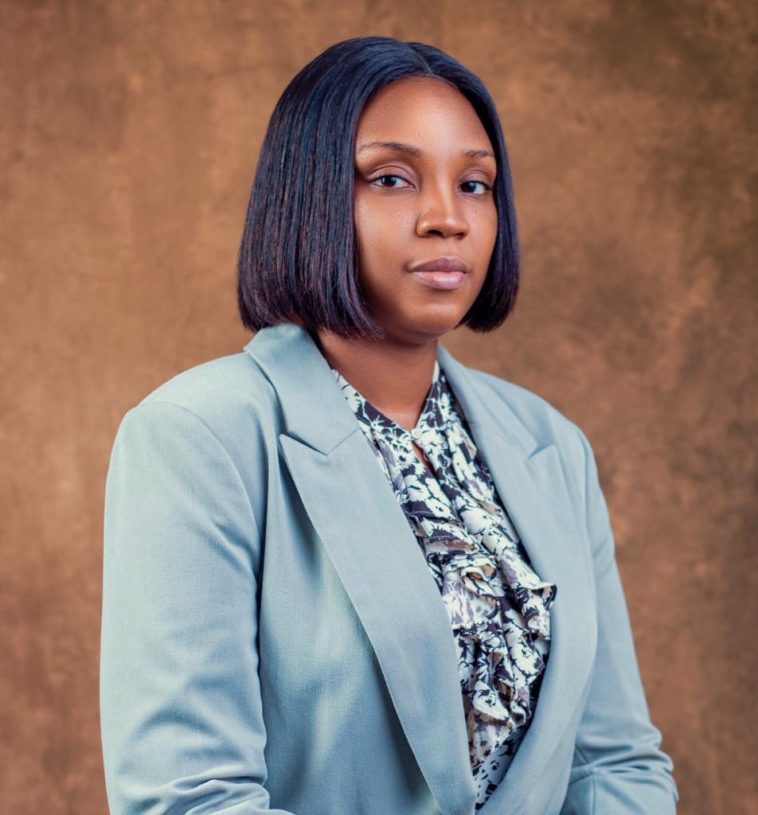For decades, women all over the world have been advocating for equality and equity. Thus, March 8, has been set aside annually by the United Nations as International Women’s Day, to reiterate the global commitment to empower women in all facets of global life. This year, the global theme is: DigitALL: Innovation and technology for gender equality. The focus is towards encouraging all to bridge the digital gap by bringing more women into technology. Current global statistics suggest that 259 million fewer women have access to the internet than men. Bringing more women into the technology curve will result in more solutions especially, since women like men and youths are not homogenous in terms of needs, feelings and value appreciation, so problems can best be resolved by those who have experienced it. In this interview with TMS, Gender advocate, Amina Omeri (PMP), x-rays issues around policy inclusiveness and development.
What inspired you to start an NGO that focuses on women and what are some of the main challenges you have faced in your work?
As a gender advocate, I saw the need to address the various gender gaps and the increasing feminization of poverty in our society. The best way to contribute to society is to create a formal structure that can coordinate the effective and efficient utilization of resources to meet the goals we have aligned with the United Nations Sustainable Development Goals. Some of the main challenges we face include a highly unresponsive patriarchal system, duplicity of policies, inept government responses, a lack of awareness about the severity of the issue and funding. However, we will keep forging ahead until we trigger and get the kind of commitment this nation so desperately needs to move forward.
The United Nations International Women’s Day is here, how do you believe digital technology can be harnessed to promote gender equality, and what specific strategies stakeholders employ to achieve this goal?
Digital technology can be a powerful tool for promoting gender equality by increasing access to education, healthcare, and economic opportunities for women and girls. Stakeholders can promote digital literacy and provide training on how to use digital tools to access information, resources, and services. I would also encourage the use social media and digital campaigns to raise awareness about the gender-based violence perpetuated both online and offline against women and girls and advocate for policies that promote gender equality in the digital space.
In your opinion, what are some of the most pressing issues facing women and girls in the digital space today, and how can we address these challenges effectively?
Some of the most pressing issues facing women and girls in the digital space include cyberbullying, online harassment, and the lack of access to digital resources and opportunities. To address these challenges effectively, we need to raise awareness about the issue, provide training and support for victims, and advocate for policies that protect women’s rights in the digital space. We also need to promote digital literacy and provide equal access to digital resources and opportunities for women and girls.
What role do you think governments and policymakers should play in promoting gender equality in the digital space, and what policy recommendations would you make to achieve this goal?
Governments and policymakers have a critical role to play in promoting gender equality in the digital space by enacting laws and policies that protect women’s rights and promote digital literacy and access. We recommend policies that promote digital inclusion for women and girls, provide protection against online violence, and promote equal access to digital resources and opportunities.
How can we ensure that women and girls are adequately represented in the technology sector, and what steps can be taken to overcome the gender gap in STEM fields?
We can ensure that women and girls are adequately represented in the technology sector by providing equal access to education, training, and resources, promoting mentorship and networking opportunities, and raising awareness about the benefits of a diverse workforce. To overcome the gender gap in STEM fields, we need to address the biases and stereotypes that discourage women and girls from pursuing careers in these fields, provide role models and mentors, and create a supportive environment that encourages women’s participation and success.
How do you see the relationship between digital technology and gender equality evolving in the coming years, and what new challenges and opportunities do you anticipate in Nigeria?
I believe that the relationship between digital technology and gender equality will continue to evolve in the coming years, as new opportunities and challenges emerge. On the one hand, digital technology has the potential to be a powerful tool for promoting gender equality and empowering women and girls. On the other hand, I have concerns about the widening poverty gap and the widening rural unbanked which I believe is caused by the unstable economy and lack of a compelling economic and financial policy direction. increasing use of technology to perpetuate gender-based violence and the impact of automation on women’s jobs. We need to stay vigilant and proactive in addressing these challenges and seizing the opportunities that arise.
How can we engage men and boys in the fight for gender equality in the digital space, and what role do they have to play in this effort?
Engaging men and boys in the fight for gender equality is critical to achieving our goals, as they have an important role to play in promoting a culture of respect and equality. We can engage men and boys by promoting awareness and education about the issue, providing role models and mentorship opportunities, and creating platforms for dialogue and collaboration. Men and boys can also play an active role in advocating for policies and practices that promote gender equality in the digital space.
What advice would you give to young women and girls who are interested in pursuing careers in the technology sector, and what can they do to ensure that they are treated fairly and given equal opportunities?
My advice to young women and girls who are interested in pursuing careers in the technology sector is to stay committed to their goals and seek out opportunities for education, training, and mentorship. They should also be proactive in advocating for themselves and their rights and seek out supportive networks and organizations that can provide guidance and support. To ensure that they are treated fairly and given equal opportunities, they should also be aware of their rights and stand up against any discrimination or bias they may encounter. It is important to remember that their skills and abilities are valuable and needed in the tech sector, and they should not be discouraged by any barriers or obstacles they may face.






